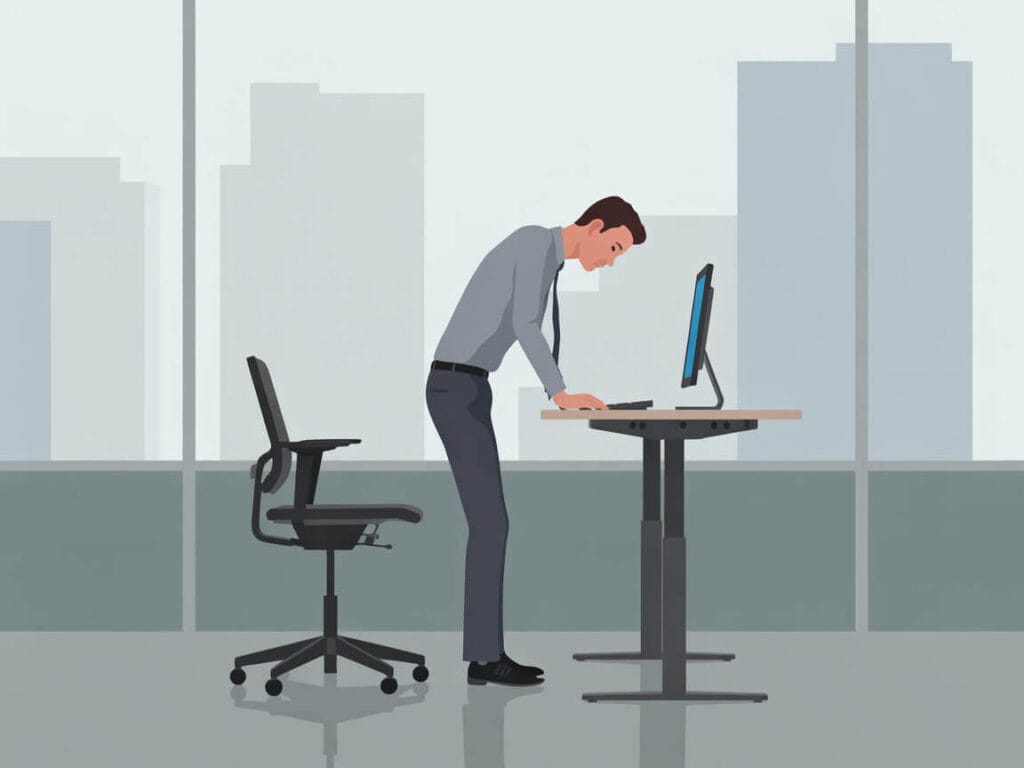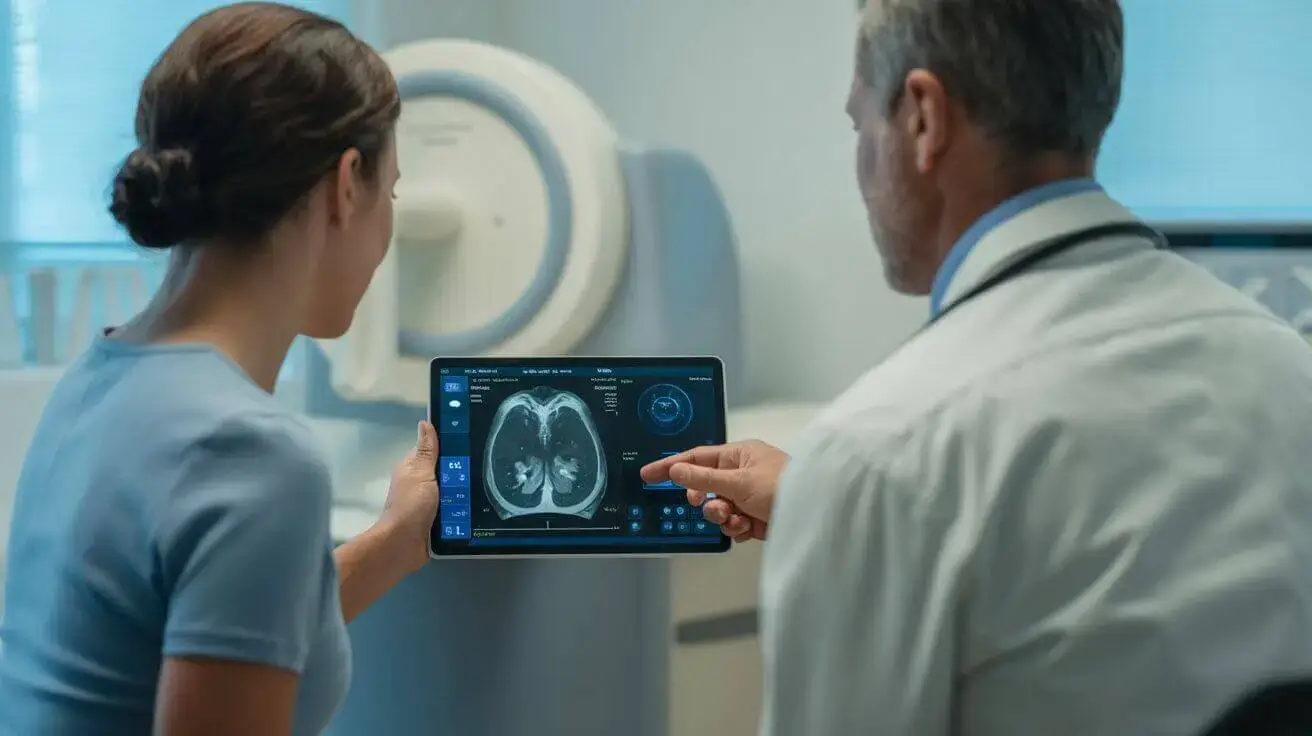If you’re looking for a healthy desk setup, does your back start aching halfway through the day? Do you feel a twinge in your neck after hours hunched over your laptop? You’re not alone — and your spine is trying to tell you something! A 2022 Gallup poll revealed that 54% of U.S. office workers report weekly neck or back pain, a number rising as more people work remotely or spend long hours at a desk.
Here’s the good news: with just a few ergonomic tweaks in your Healthy Desk Setup, you can reduce discomfort by up to 60% in two weeks. A 2021 systematic review found that ergonomic workplace interventions significantly reduced low back pain and improved workers’ physical well-being. Below, you’ll find a practical, research-backed checklist to transform your desk into a spine-friendly oasis — whether you work from a home office or a shared workspace.
Quick win: As you read, lift your laptop so the top of your screen sits at or just below eye level. This instantly reduces shoulder tension.
3-Point Alignment for an Ergonomic Workspace
Good posture starts with three key alignment points:
Eyes ↔ Monitor
- Align the top of your screen with your eyebrows.
- Keep the screen an arm’s length (20–28 inches) away.
- Adjust screen brightness to match room lighting and avoid squinting.
Sometimes, small lifestyle changes can boost the effect of these ergonomic adjustments. For example, staying consistent with simple daily habits — like those shared in our Practical Advice for a Healthier Daily Routine — can help reinforce good posture by keeping your body stronger and more resilient.
Elbows ↔ Keyboard & Mouse
- Bend elbows at about 90°, keeping wrists straight.
- If possible, use a negative-tilt keyboard tray that slopes away from you.
Hips–Knees–Ankles
- Hips should be slightly higher than knees, feet flat on the floor or on a footrest.
- Maintain a two-finger gap between the seat edge and the back of your knees to avoid circulation issues.
Budget vs. Premium Office Ergonomics
Setting up an ergonomic workspace doesn’t have to break the bank:
| Component | Budget Fix (< $30) | Premium Upgrade |
|---|---|---|
| Monitor Height | Stack of hardcover books | Gas-spring monitor arm |
| Lumbar Support | Rolled-up towel | Adjustable chair with built-in lumbar |
| Footrest | Yoga block or shoebox | Adjustable ergonomic footrest (e.g., Humanscale) |
| Keyboard | Basic keyboard with tray | Low-profile mechanical keyboard (Keychron K3) |
Remember: Proper positioning provides 70% of the benefit — start with budget fixes before upgrading.
Micro-Breaks for Neck Pain Relief

Combat the effects of prolonged sitting with this routine every 30 minutes:
0–1 min: 15 scapular squeezes (pinch shoulder blades back).
1–1:30 min: Chin tuck stretch — tuck chin straight back, hold 10 seconds, repeat 3x.
1:30–2 min: Stand and march in place to boost circulation.
A strong daily routine can also improve your ability to stick with these micro-breaks. Our piece on Simple Tips to Improve Your Quality of Life explores easy strategies that complement your desk setup and help make healthier habits second nature.
Buddy tip: Set a recurring 30-minute calendar reminder with a colleague; accountability increases adherence by 50% (Harvard Business Review, 2021).
Eye & Screen Wellness Tips
Protect your eyes while you work:
✅ Add an anti-glare filter if your desk faces bright windows.
✅ Follow the 20-20-20 rule: every 20 minutes, look 20 feet away for 20 seconds.
✅ Switch to dark mode after 7 p.m. to minimize blue-light disruption and support better sleep.
Debunking Myths to Prevent Back Pain at Work

🚫 “Standing desks cure back pain.” Alternating sitting and standing is best; standing more than 4 hours increases risk of varicose veins.
🚫 “Lumbar pillows fit everyone.” They must match your lumbar curve (typically 4–6 cm).
🚫 “Ergonomic gear is too expensive.” Most benefits come from proper positioning, not pricey gadgets.
Your Healthy Desk Setup Action Plan
✅ Adjust screen height and elbow position today — it takes just 5 minutes.
✅ Set a timer for micro-breaks every 30 minutes.
✅ Reassess after two weeks; if pain persists, explore ergonomic upgrades.
With these evidence-backed steps for a Healthy Desk Setup, you’ll work more comfortably and protect your health for years to come.
Medical Disclaimer: This content is for educational purposes only and does not replace professional medical advice, diagnosis, or treatment. Always consult your physician or a qualified healthcare provider with any questions about a medical condition.










